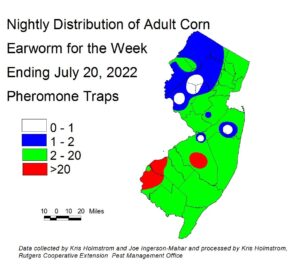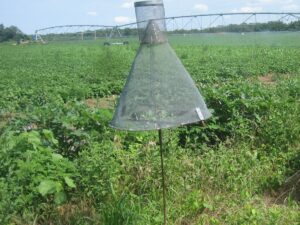There are still positions available for seasonal, temporary worker(s) for the Rutgers Vegetable IPM program. The work entails checking insect traps and doing some field scouting with farms in southern New Jersey (Burlington, Camden, Gloucester, Atlantic, Cumberland, and Salem counties). There will be on-the-job

Corn earworm pheromone trap
training. Hourly wages are up to $20/hour, depending upon experience and/or areas of study. Applicants must have vehicles and will be reimbursed for mileage. For more details and to fill out an application, please go to https://jobs.rutgers.edu/postings/158384
